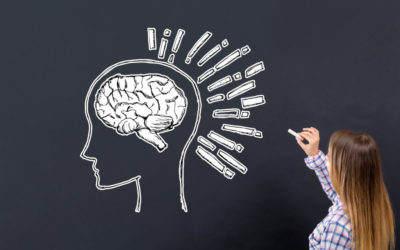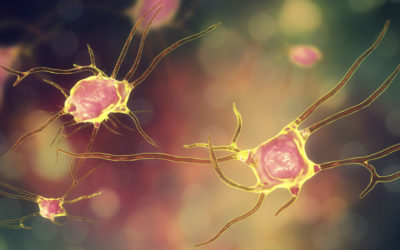Quick Hits
Daily brief research updates from the cognitive sciences

As we age things start to decline, we all know that – happens to the best of us. We know that cognitive ability starts to decline after about 30 though different abilities decline at different ages: some research has shown that some cognitive abilities stay healthy for a long time (mental speed notably) as I reported here.
We also know that muscle strength decreases in later years, and this also therefore impacts mobility and simply staying healthy.
Then we also know that both physical and mental ability help each other. There is plenty of research to show the positive impacts of exercise on cognitive ability and aging. We also know that cognitive ability impacts the desire and motivation to exercise – with muscle anyhow losing strength as we age.
This also interests me greatly, as some of you readers may know I am a competitive masters athlete – running internationally on the track. And at these competitions we see people up to the age of 100 competing and some mightily impressive performance at all ages – but everyone gets slower and weaker with age – despite training.
So, this sounds like a bit of a chicken and egg conundrum. We know they both influence each other but is one more influential than the other? Enter Cheval et al. from the University of Geneva in Switzerland.
They analysed data from 105’206 adults in a European-wide database and compared cognitive abilities with a verbal fluency test and self-reported physical activities. They they fed this into different statistical models to see if it was exercise that influenced cognitive ability, or cognitive ability that influenced exercise, or if it was a mutual impact.
The results were what I have also reported on, that it does indeed seem to be that cognitive capacities influence physical ability. It Is not that physical ability doesn’t influence cognitive capacity it just that this is not the most influential.
So, the jury seems to be in. Brains go first.
However, that said this is looking at a general population group and general exercise – I would wonder how this is in a group of competitive masters athletes like myself?
Nevertheless, this does mean that looking after our brain and therefore cognitive capacity is really important (I write regularly about this here).
But irrespective of what comes first – the advice is still: look after your brain…and do keep (or start) exercising.

Andy Habermacher
Andy is author of leading brains Review, Neuroleadership, and multiple other books. He has been intensively involved in writing and research into neuroleadership and is considered one of Europe’s leading experts. He is also a well-known public speaker, speaking on the brain and human behaviour.
Andy is also a masters athlete (middle distance running) and competes regularly at international competitions (and holds a few national records in his age category).
References
Mengtong Li, Hwei-Ee Tan, Zhengyuan Lu, Katherine S. Tsang, Ashley J. Chung, Charles S. Zuker.
Gut-Brain Circuits for Fat Preference.
Nature, 2022
DOI: 10.1038/s41586-022-05266-z
More Quick Hits
Think Like a Kid to Learn Better?
Think like a kid may sound like a good piece of advice – but with some interesting twists…
Those Who Distrust Humans, Trust AI
We probably all know someone who is extremely distrustful of fellow human beings…
Watching TV With Your Child Can Help Cognitive Development
This is another study to show that there is no quick and easy answer to the question of screen time and children…
How Fear Gets Stuck in (Some) Brains
Fear is an important human emotion and essential to survival so not to be underestimated…
Your Brain Switches Between Remembering and Learning
Learning and memory are key functions of the brain and ones that attract a lot of attention and research…
How Daily Rhythms Help Your Brain Grow After Injury
Always nice to know that you brain can grow – and it is still met with surprise when I explain how this can happen…






